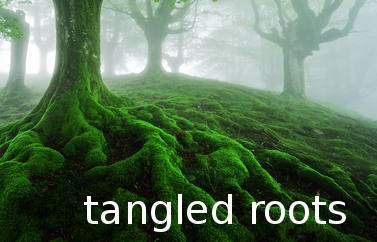Fear is always “fear of” something, some object or real or perceived threat. Courage is instrumental in addressing fear - through courageous engagement with that object (see the previous post Fear 2/22/2016).
Anxiety is not fear. One of the primary features of anxiety, and the feature that most distinguishes it from fear, is it's disconnection from a specific objective stimulus. Robert Stolorow points out that Freud made a distinction "between fear which 'has found an external object,' and anxiety, which 'has a quality of indefiniteness and lack of object.’ " (1)
The “indefinite” quality of anxiety presents a dilemma not present in the experience of fear. From therapist Irvin Yallom, “A fear that can neither be understood nor located cannot be confronted and becomes more terrible still: it begets a feeling of helplessness which invariably generates further anxiety.” (2)
So we might think of anxiety as “a fear that can neither be understood nor located.” Sounds (and certainly can be) terrifying. What can you do about something like that? Unfortunately, while the experience of anxiety is extremely common, there is little consensus among experts as to its source, what it actually is, or its treatment.
Journalist and author Scott Stossel is a life-long sufferer of anxiety, and has written a book and spoken widely on the subject (3). I’ve included the lengthy quote below because I think it does such a good job of summarizing the state of our understanding of anxiety.
“... the psychological field remains riven by disputes over what causes anxiety and how to treat it. The psychopharmacologists and psychiatrists I've consulted tell me that drugs are a treatment for my anxiety; the cognitive behavioural therapists I've consulted sometimes tell me that drugs are partly a cause of it. Is pathological anxiety a medical illness, as Hippocrates and Aristotle and modern pharmacologists would have it? Or is it a philosophical problem, as Plato and Spinoza and the cognitive behavioural therapists would have it? Is it a psychological problem, a product of childhood trauma and sexual inhibition, as Freud and his acolytes would have it? Or is it a spiritual condition, as Søren Kierkegaard and his existentialist descendants claimed? Or, finally, is it – as WH Auden, David Riesman, Erich Fromm, Albert Camus and scores of modern commentators have declared – a cultural condition, a function of the times we live in and the structure of our society?
"The truth is that anxiety is at once a function of biology and philosophy, body and mind, instinct and reason, personality and culture. Even as anxiety is experienced at a spiritual and psychological level, it is scientifically measurable at the molecular level and the physiological level. It is produced by nature and it is produced by nurture. It's a psychological phenomenon and a sociological phenomenon." (4)
Well - speaking for myself - that really didn’t help very much.
Fear presents the possibility of courageous engagement with the object of fear, leading to the possibility of relief (remember Buck? - "what a relief"). Anxiety presents a different, more complex challenge. There is no specific object to look at, to shine a light on, to understand. To make matters worse, while there is lots of professional guidance regarding anxiety and it's treatment, it is not consistent and is even contradictory. What's an anxious person to do? Contemplating my own anxiety almost makes me yearn for a good old-fashioned phobia (spiders - yikes!).
Given the complex nature of anxiety, how can we confront it, come to grips with it, and go on to live the life that is ours? Is relief possible? While drugs can be useful, is anxiety really best understood as a deficiency of some pharmaceutical product? What is the relationship, if any, between anxiety and personal courage, choice, responsibility, and joy?
Perhaps anxiety is ultimately best addressed as having more to do with questions than with answers - more "mystery" than problem to be solved. In the next article in this series, we'll shine a light on anxiety from an existential perspective.
(1) Stolorow, R.D. (2007). Trauma and Human Existence: Autobiographical, Psychoanalytic, and Philosophical Reflections. New York: Routledge, p. 33.
(2) Yallom, I.D. (1980). Existential Psychotherapy. New York: Basic Books, p. 43.
(3) See his book, copyright 2013, on the subject of anxiety: My Age of Anxiety: Fear, Hope, Dread, and the Search for Peace of MInd.
(4) Stossel, S. (2014, January 4). My anxious life in an age of anxiety. Retrieved from http://www.theguardian.com/society/2014/jan/05/sco... This article is extracted from the book My Age of Anxiety: Fear, Hope, Dread, and the Search for Peace of Mind.